20+ Movies With Unreliable Narrators
Spoilers and existential dread lie ahead. Here is a list of films with unreliable narrators to disturb the comfortable and comfort the disturbed.
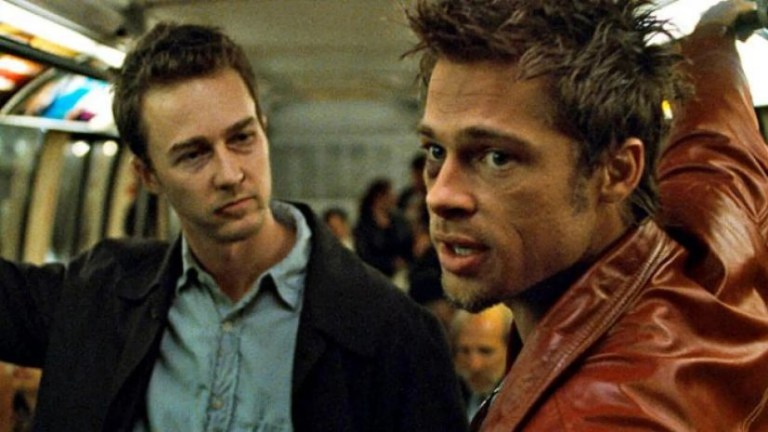
Table of Contents
Some films remind us of an unsettling fact: the truth is subjective. The concept of ultimate truth is a comfort that some films rip away. The perfect way to do this is through an unreliable narrator. This is a literary tool used in books and films wherein the narrator misleads the audience. Sometimes the narrator does this unwittingly. Sometimes they intend to deceive you. This powerful tool renders the audience unable to predict a narrative pattern. Uncomfortable twists are everywhere on this list. All are hidden like landmines ready to detonate any feeling of comfort you once had.
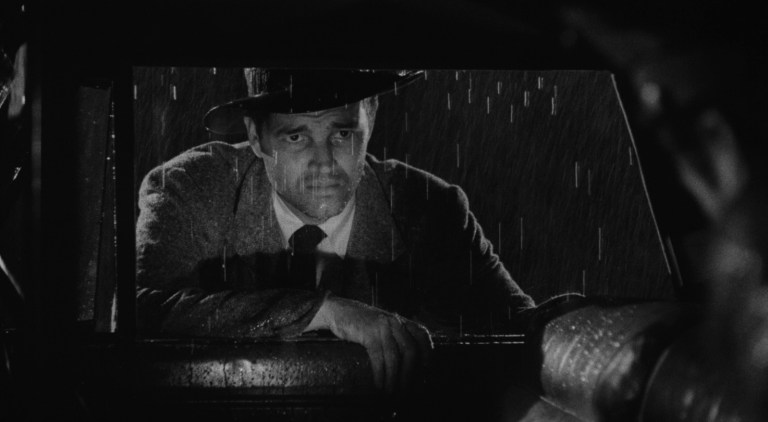
Films with unreliable narrators make you wonder about your own truth. Truths that are just as subjective as the ones on this list. Can you really trust your own internal narration? Or are you headed for a twist ending? Do you have a secret alter ego? Or has your guilt eaten away at reality? Perhaps you’re no longer in our physical realm at all. Just a spirit, unaware of your own demise. You will find all of these instances in this article, but beware! For within this list lie major spoilers. And possibly an interrupted sense of reality.
Movies With Unreliable Narrators
Rashomon (1950)

The greatest and most well-known example of an unreliable narrator in film is in Akira Kurosawa’s Rashomon. A samurai is murdered. To get to the truth about what happened, a court hears the testimony of a bandit involved in the crime, the murdered samurai’s wife, and the samurai himself through the help of a spiritual medium. All three stories are different, as is the story told by a woodcutter who witnessed the murder but refused to testify. The differences in the tales lie in the motivations of the speakers, but are any of them telling the truth?
Jacob’s Ladder (1990)
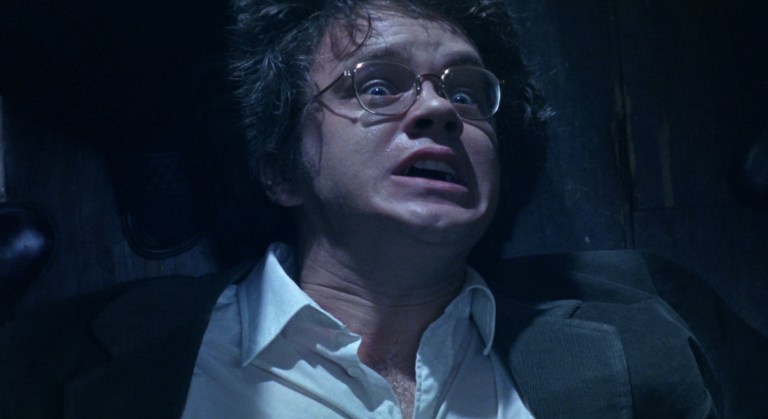
Vietnam war veteran Jacob (Tim Robbins) lives in a near-constant dissociative state. Or does he live at all? War flashbacks, visions, and reality blend together into one blurry nightmare. Realizing the soldiers in his platoon struggle with similar issues, his torment worsens. Throughout the dreamy narrative of the film, many questions arise. Is Jacob a part of a military experiment? Or are his visions a symptom of PTSD? Maybe Jacob is already dead, a wandering soul being ripped apart. To navigate through these questions we only have Jacob to turn to, a narrator who is just as confused as you are. A remake starring Michael Ealy as Jacob was released in 2019.
The Usual Suspects (1995)
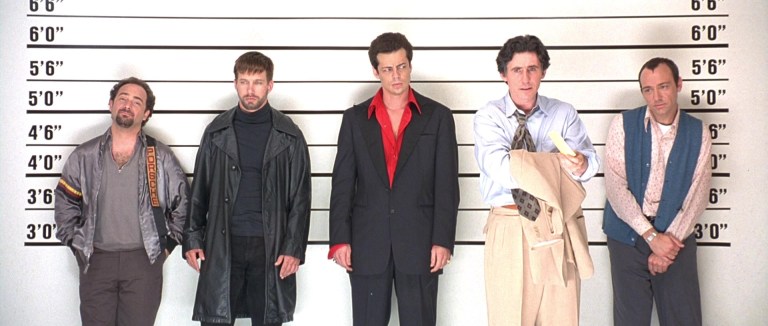
Who is Keyser Söze? That’s the main question investigators are trying to figure out after discovering a massacre on a ship in The Usual Suspects. One of only two survivors of the bloodbath is Roger “Verbal” Kint (Kevin Spacey), a con artist who is very forthcoming with police about everything he knows. The plot of the movie unfolds as a flashback based on Verbal’s retelling of the events, but how honest is Verbal actually being? The Usual Suspects is famous for its twist ending, entering “Keyser Söze” into the cultural lexicon as a term related to verbal manipulation and a person who is “feared but elusive.”
Fallen (1998)
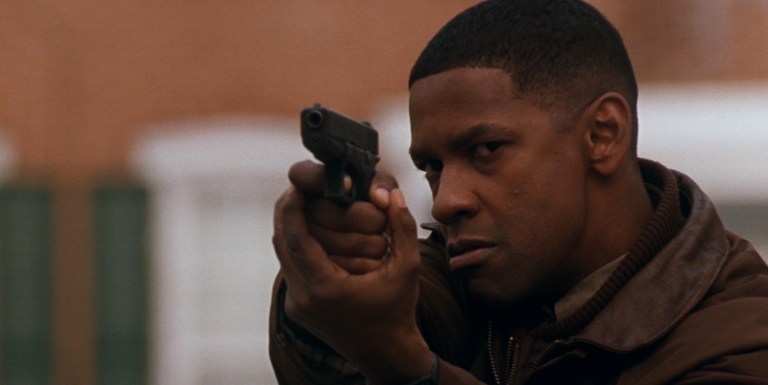
Detective Hobbes (Denzel Washington) searches for a copycat killer. What he finds is far worse. Or is this all a symptom of his guilt for putting the wrong man to rest? The narration jumps between paranoia and the paranormal as Hobbes hunts down the demon responsible for the killings. The audience and detective Hobbes struggle in separating facts from delusions. “He is a facts guy who only accepts what he sees,” Washington says of his character, “but as these strange murders occur, he’s forced to admit to himself that there might be something out there that he can’t explain.”
The Sixth Sense (1999)

When psychologist Malcolm Crowe (Bruce Willis) is shot by former patient, he tries even harder to cure his next client. Six-year-old Cole (Haley Joel Osment) is a difficult case, however. He claims to “see dead people,” although no one will believe him. Not until Malcolm. Malcolm makes Cole feel understood and seen. But, Cole sees him too. The two help each other overcome their anxieties and break boundaries, not only within themselves, but also the boundary between our world and the next.
Fight Club (1999)

Freedom can be found through destruction. Tyler Durden (Brad Pitt) is the catalyst for the destruction. He is someone who is full of nihilistic philosophies that lead to our narrator’s undoing. Harm befalls more and more people as the line between Tyler and the narrator (Edward Norton) blurs. Eventually, the narrator becomes aware of his own unreliability, shaking the foundation of the story. I am Jack’s broken sense of reality. This dystopian film is based on the novel by Chuck Palahniuk.
Perfect Blue (1999)

The animation may be calming and gentle, but the story is violent and terrifying. Mima Kirigoe transitions from a famous pop star to an aspiring actress. As she strives for perfection, her sanity slips away. This leaves her vulnerable to a stalker. What is more dangerous? Her interior or exterior monsters? The anime film splits into two narratives. Mima and the audience are left to struggle between reality and nightmare visions.
Memento (2001)
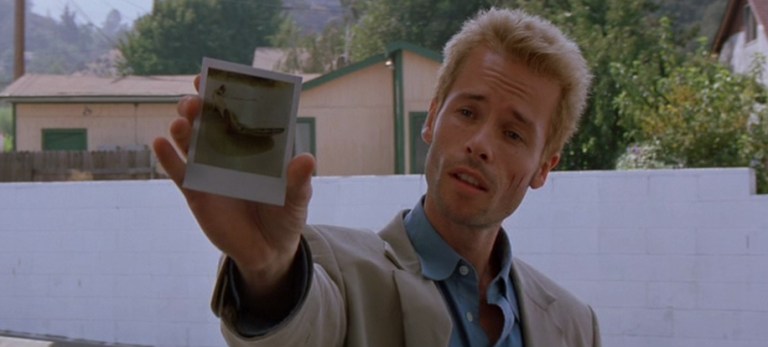
Memento uses mental illness as a twist to an otherwise traditional neo-nior revenge film narrative. Leonard Shelby (Guy Pearce) suffers from anterograde amnesia, so he relies on mementos as reminders and clues as he hunts for his wife’s murderer. These mementos range from polaroid photos to tattoos he etches into his flesh. Perhaps they are also mementos of his lost wife, a permanent reminder of the love he felt. “We all need mirrors to remind ourselves who we are,” Leonard narrates, “I’m no different.”
Big Fish (2003)

Directed by Tim Burton, Big Fish is a story about stories. Edward Bloom (Albert Finney & Ewan McGregor) loves telling larger-than-life tales he claims really happened to him, but his son Will (Billy Crudup) can’t believe his unbelievable stories. Will wishes his father could just tell the truth. As Edward’s life nears its end thanks to a cancer diagnosis, Will investigates his father’s stories, learning that there may be more truth in the tall tales than Will ever realized.
Secret Window (2004)
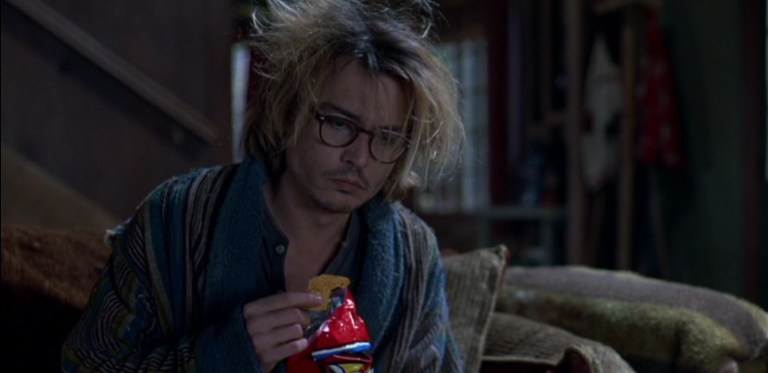
While trying to finish his newest novel, Mort Rainey (Johnny Depp) is interrupted by John Shooter (John Turturro), a man who would also be a famous author if Mort hadn’t stolen his story. Mort initially denies the allegations. However, his accuser quickly becomes more violent and insistent. The story takes us through Mort’s dark past, and eventually the hidden truth of the present. One thing is sure, Stephen King knows how to create writers who lose their sanity.
Eternal Sunshine of the Spotless Mind (2004)
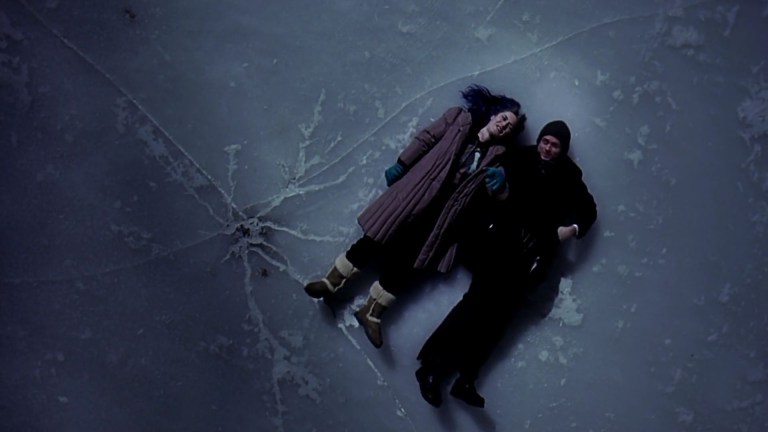
Beautiful and moving, Eternal Sunshine of the Spotless Mind is masterful meditation on love and heartache. Clementine (Kate Winslet) decides to undergo a procedure to erase all memories of her ex-boyfriend Joel (Jim Carrey) from her mind. Learning of Clementine’s actions, Joel decides to do the same, erasing Clementine from his mind. But during the procedure, Joel realizes he doesn’t want to forget their love. Told mostly through Joel’s crumbling memories, the film is a mind-bending experience filled with pieces of memories and alerted perceptions.
The Machinist (2004)
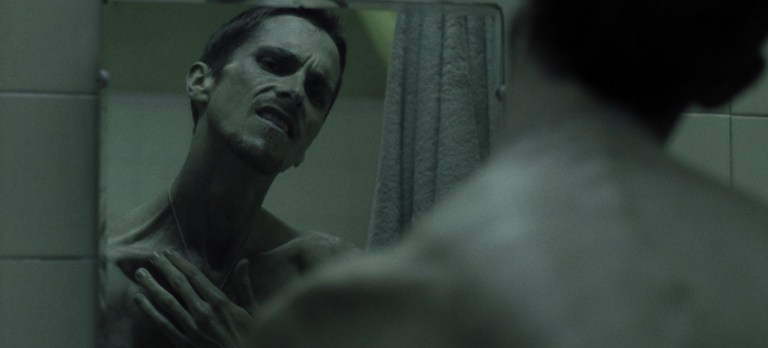
Watch a man implode on screen. No matter how much he eats, Trevor Reznik (Christian Bale) loses weight at a rapid pace. He also hasn’t slept in a year. As he withers away, Trevor begins to find mysterious notes left in his home. One morning he finds a game of hangman on his refrigerator. As he begins to fill in the blanks on the game, the audience attempts to do the same with his narrative.
Hard Candy (2006)
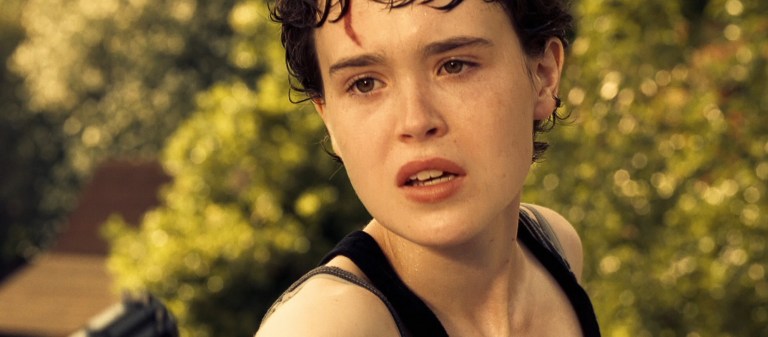
Pedophile photographer Jeff (Patrick Wilson) gets 13-year-old Hayley (Elliot Page) to come to his home for a photo shoot. Grooming through digital chats helps him set up a trap for the young girl to fall into. Yet, he isn’t the true hunter here. Hayley proves to have ulterior motives. The tables turn as an epic battle commences. Until the very last scene, the audience is left yearning for the truth about Jeff’s crimes. Who can be relied on for answers?
A Perfect Getaway (2009)

A beautiful beach vacation is the perfect location for a contrasting horror. With news of a murderous couple on the loose in Hawaii, Cliff (Steve Zahn) and Cydney (Milla Jovovich) join up with another vacationing couple, Nick (Timothy Olyphant) and Gina (Kiele Sanchez). There may be safety in numbers, but suspicions begin to rise. Paranoia blurs reality until the true killers are revealed. A Perfect Getaway challenges your perception. Seemingly innocent events turn sour as more shocking truths are revealed.
Shutter Island (2010)
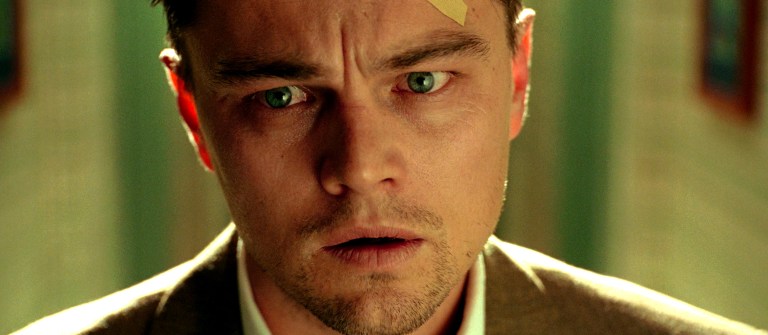
U.S. Marshal Teddy Daniels (Leonardo DiCaprio) investigates an isolated psych ward. While he does, the audience works just as hard to find the truth buried in the narrative. The atmosphere seems to darken even further as the film progresses. A shattering conclusion is reached. Teddy remains stuck between not only his past and his present, but also within the delusions he uses to hide from both.
Gone Girl (2014)
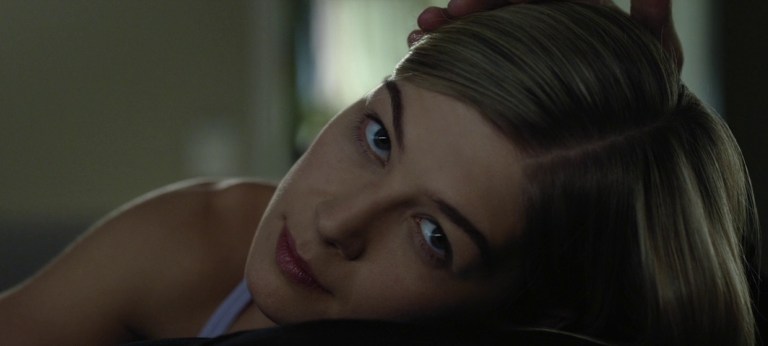
Amy (Rosamund Pike) and Nick (Ben Affleck) are in an abusive relationship. When she finally escapes him, it is implied that harm has befallen her. As this dark thriller progresses we watch Amy take the narrative into her own hands. The plot twists and turns until husband and wife are finally reunited. Lies tie them together, and it may surprise you who holds the rope. The film is based on the 2012 novel by Gillian Flynn.
Goodnight Mommy (2014)
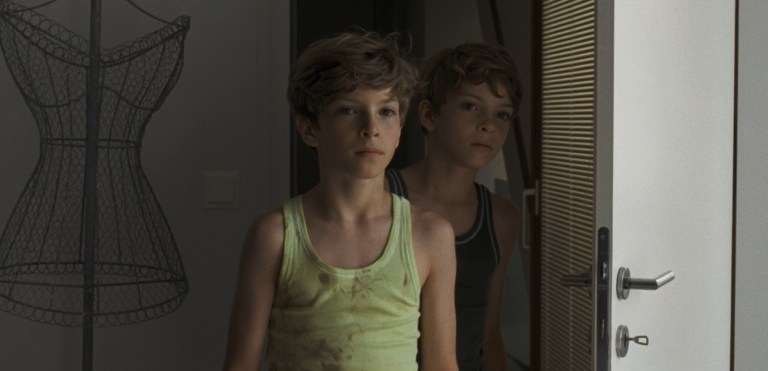
This German language psychological horror film will ignite your fear of children. It will also remind you of your childhood fear of adults. Twins Lukas and Elias attempt to uncover secrets that lie behind the bandages on their mother’s face. This mystery is a distraction from the real one, a tragedy too painful for mother and child to confront. This painfully quiet film is so raw, even the audience may not want to discover the truth hidden in plain sight.
Marrowbone (2017)
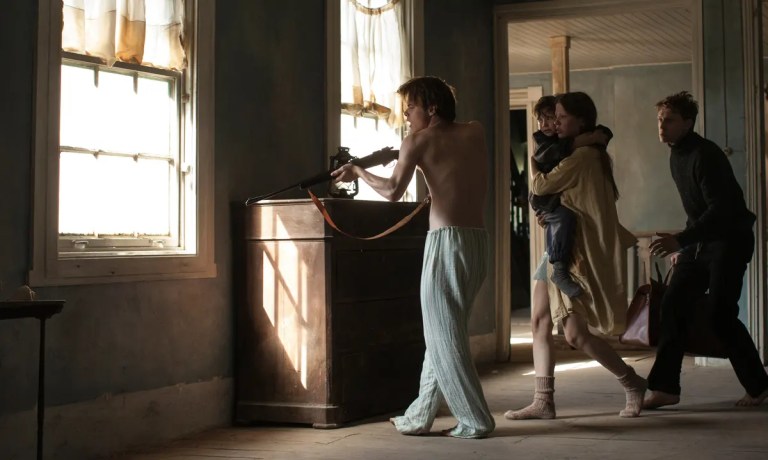
A psychological horror movie about four siblings living in a large, dilapidated home in Maine. After their mother dies, the children keep her death a secret so that they will not be separated. The family lives in fear of being discovered by townspeople on the outside while being haunted by ghosts inside the home.
Fractured (2019)

Ray (Sam Worthington) wakes up in a waiting room alone. This is expected, as his wife is with his daughter in the hospital basement as doctors x-ray her arm. What is unexpected is the hospital claiming not to have a record of his family’s arrival. We are forced to follow the narrative of a fractured mind, and we even rely on it for the truth until a police officer presents a different set of events. In retracing his steps we discover the truth behind all the broken pieces.
The Empty Man (2020)

Teens begin to disappear from their small midwestern town. The truth is buried within the urban legend of The Empty Man. While pursuing this mystery, ex-officer James Lasombra (James Badge Dale) discovers a cult. Is he an unwelcome guest, or has he been summoned? The narrative twists as soon as you think you may be spared from the paranormal danger that lurks in the film. Unfortunately for the ex-cop, The Empty Man obeys no law but their own. As the audience searches for truth, the film proposes an important question. Whose truth is true? “The war over who gets to define what truth is,” filmmaker David Prior says, “it’s not only an intriguing theme that’s probably always been relevant but it seems particularly relevant now.”
More Films Featuring Unreliable Narrators
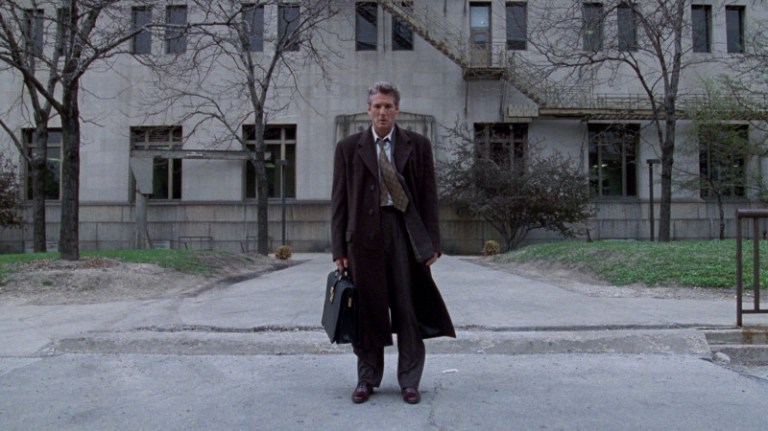
- The Cabinet of Dr. Caligari (1920) – A German expressionist silent film. A doctor hypnotizes a man into committing murders while half-asleep.
- Stage Fright (1950) – An Alfred Hitchcock film noir about an actress. She must prove that her friend is innocent rather than a murderer.
- The Innocents (1961) – A governess minds children she believes may be possessed.
- Primal Fear (1996) – A defense attorney (Richard Gere) must prove that an alter boy accused of murdering a priest is innocent.
- The Ugly (1997) – A psychiatrist must determine if a serial killer with ugly duckling syndrome has been cured.
- American Psycho (2000) – A businessman in NYC lives a double life. One of an investment banker, and one of a serial killer.
- High Tension (2003) – A New French Extremity film wherein a serial killer attacks attacks a family and kidnaps a woman, only to have the woman’s best friend attempt to save her.
- Black Swan (2010) – The story is told from the perspective of the fracturing mind of a young ballerina (Natalie Portman) obsessed with perfection.
- Life of Pi (2012) – Pi Patel tells a story of amazing adventure to a young writer, a story that Pi himself admits may or may not be true.
- Star Wars: The Last Jedi (2017) – In one of the film’s more contentious plot points, Luke Skywalker (Mark Hamill) and Kylo Ren (Adam Driver) each recall a pivotal moment of conflict differently.
- I, Tonya (2017) – Margot Robbie stars in this comedic biopic (loosely based in fact) about Tonya Harding, as told from the wildly differing perspectives of the people in her life.
- Joker (2019) – Arthur Fleck’s (Joaquin Phoenix) mental breakdown is exemplified in a subplot involving his neighbor (Zazie Beetz) which is revealed to be all in Arthur’s head.
- Somewhere Quiet (2023) – A traumatized woman recovers from a kidnapping at her husband’s secluded family estate.
